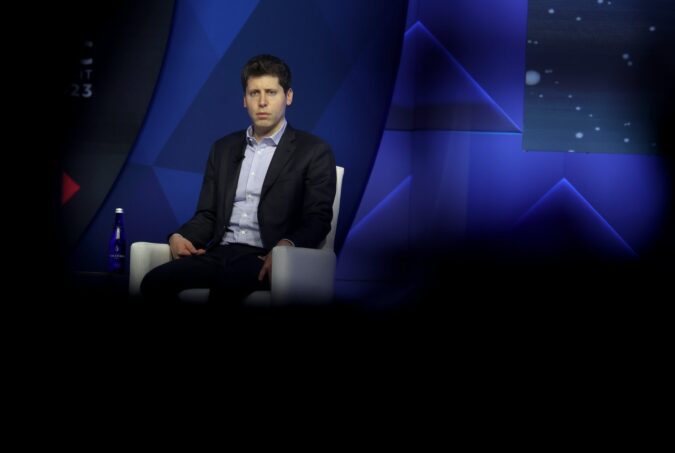The sudden removal of OpenAI CEO Sam Altman on Friday was met with shock and disapproval by the company’s employees. More than 90% signed a letter threatening to leave OpenAI if the board didn’t resign and reinstate Altman. The OpenAI employees had faith in Altman. They believed in his vision and they did not like that the board could dismiss him so easily. Is their upset justified? Did the board overstep its bounds? Or did it exercise a necessary check on power? https://twitter.com/satyanadella/status/1726509045803336122?ref_src=twsrc%5Etfw%7Ctwcamp%5Etweetembed%7Ctwterm%5E1726509045803336122%7Ctwgr%5E53a5ba6d82ed8a383027570f3ecdffc60d632db6%7Ctwcon%5Es1_&ref_url=https%3A%2F%2Ftheconversation.com%2Fopenais-board-is-facing-backlash-for-firing-ceo-sam-altman-but-its-good-it-had-the-power-to-218154 Silicon Valley’s ‘genius founder’ mythology The idea of a “genius founder” lies at the heart of Silicon Valley culture. Steve Jobs, Elon Musk, Mark Zuckerberg, Sergey Brin and Larry Page are not known as privileged men who managed to build successful businesses through a combination of hard work, smart decision-making and luck. Rather, they are celebrated as geniuses, wunderkinds, perhaps even maniacs – but always brilliant. Men who accomplished feats no one else could, because of their innate genius. A captivating founder narrative has become almost a prerequisite for any tech startup in Silicon Valley. It makes a company easier to sell and also structures power within the organisation. Throughout human history, founder mythologies have been used to explain, justify and sustain hierarchies of power. From heroes to deities to founding fathers, the founder myth provides a way to understand the current distribution of power and to unite around a figurehead. What happened this week at OpenAI was a challenge to the natural order of things in Silicon Valley. What happened to Sam? It’s quite remarkable a superstar “genius founder” such as Sam Altman wasn’t safeguarded by a company structure that could prevent his ousting. Tech company founders often create intricate structures to entrench themselves in their companies. For instance, when Google restructured into Alphabet, it created three share classes: one with standard voting rights, another with ten times the voting rights for the founders, and a third class without voting rights, mainly…
The OpenAI employees had faith in Altman. They believed in his vision and they did not like that the board could dismiss him so easily. Is their upset justified? Did the board overstep its bounds? Or did it exercise a necessary check on power?


